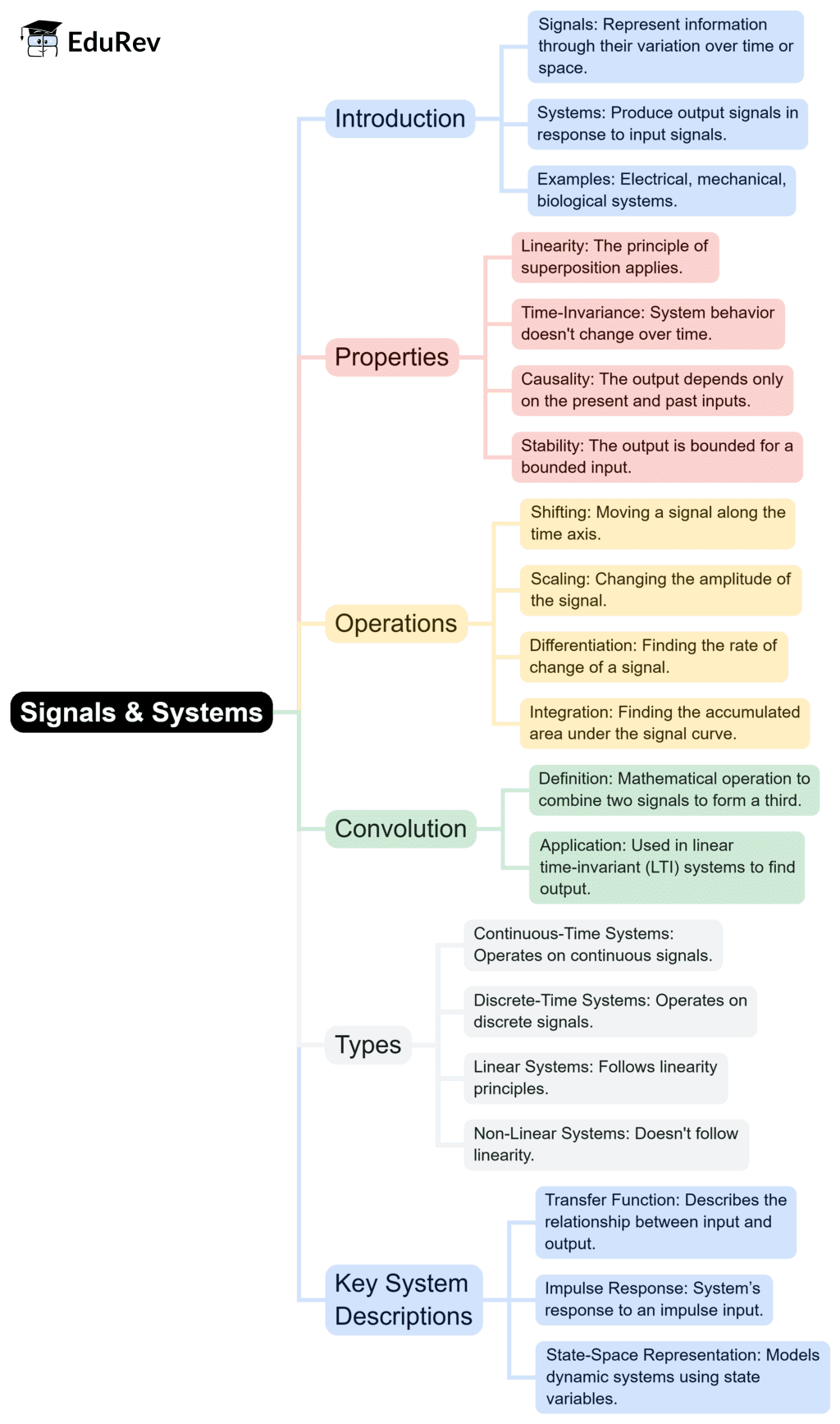Electronics and Communication Engineering (ECE) Exam > Electronics and Communication Engineering (ECE) Notes > Signals and Systems > Mind Map: Introduction to Signals & Systems
Mind Map: Introduction to Signals & Systems | Signals and Systems - Electronics and Communication Engineering (ECE) PDF Download

The document Mind Map: Introduction to Signals & Systems | Signals and Systems - Electronics and Communication Engineering (ECE) is a part of the Electronics and Communication Engineering (ECE) Course Signals and Systems.
All you need of Electronics and Communication Engineering (ECE) at this link: Electronics and Communication Engineering (ECE)
|
36 videos|117 docs|63 tests
|
FAQs on Mind Map: Introduction to Signals & Systems - Signals and Systems - Electronics and Communication Engineering (ECE)
| 1. What are the fundamental concepts of signals in the context of electronics and communication engineering? |  |
Ans. In electronics and communication engineering, signals are functions that convey information about the behavior or attributes of a phenomenon. The fundamental concepts include continuous-time and discrete-time signals, periodic and non-periodic signals, and deterministic and random signals. Understanding these concepts helps in analyzing and processing signals effectively.
| 2. How do systems interact with signals in engineering applications? |  |
Ans. Systems in engineering are defined as a set of components that operate together to process signals. They can be linear or nonlinear, time-invariant or time-variant. The interaction involves input signals being transformed into output signals through system operations, which can be analyzed using system properties such as stability, causality, and frequency response.
| 3. What are the different types of systems classified in signals and systems? |  |
Ans. Systems can be classified into several categories:
1. Linear vs. Nonlinear: Linear systems follow the principle of superposition, while nonlinear systems do not.
2. Time-Invariant vs. Time-Variant: Time-invariant systems have properties that do not change over time, while time-variant systems do.
3. Causal vs. Non-Causal: Causal systems depend only on past and present inputs, while non-causal systems may depend on future inputs.
4. Stable vs. Unstable: Stable systems produce bounded outputs for bounded inputs, whereas unstable systems may produce unbounded outputs.
| 4. What role do Fourier and Laplace transforms play in signals and systems analysis? |  |
Ans. Fourier and Laplace transforms are mathematical tools used to analyze signals and systems in the frequency domain. The Fourier transform decomposes a signal into its frequency components, allowing for analysis of periodic and aperiodic signals. The Laplace transform extends this concept to include complex frequency, which is useful for analyzing linear time-invariant systems and determining system stability and response.
| 5. Why is it important to understand the concepts of signals and systems in communication engineering? |  |
Ans. Understanding signals and systems is crucial in communication engineering because it lays the foundation for analyzing and designing communication systems. Knowledge of how signals are generated, transmitted, and processed allows engineers to optimize system performance, enhance signal clarity, and improve overall communication efficiency. This understanding is essential for developing modern communication technologies such as wireless networks, digital communications, and signal processing techniques.
Related Searches
















